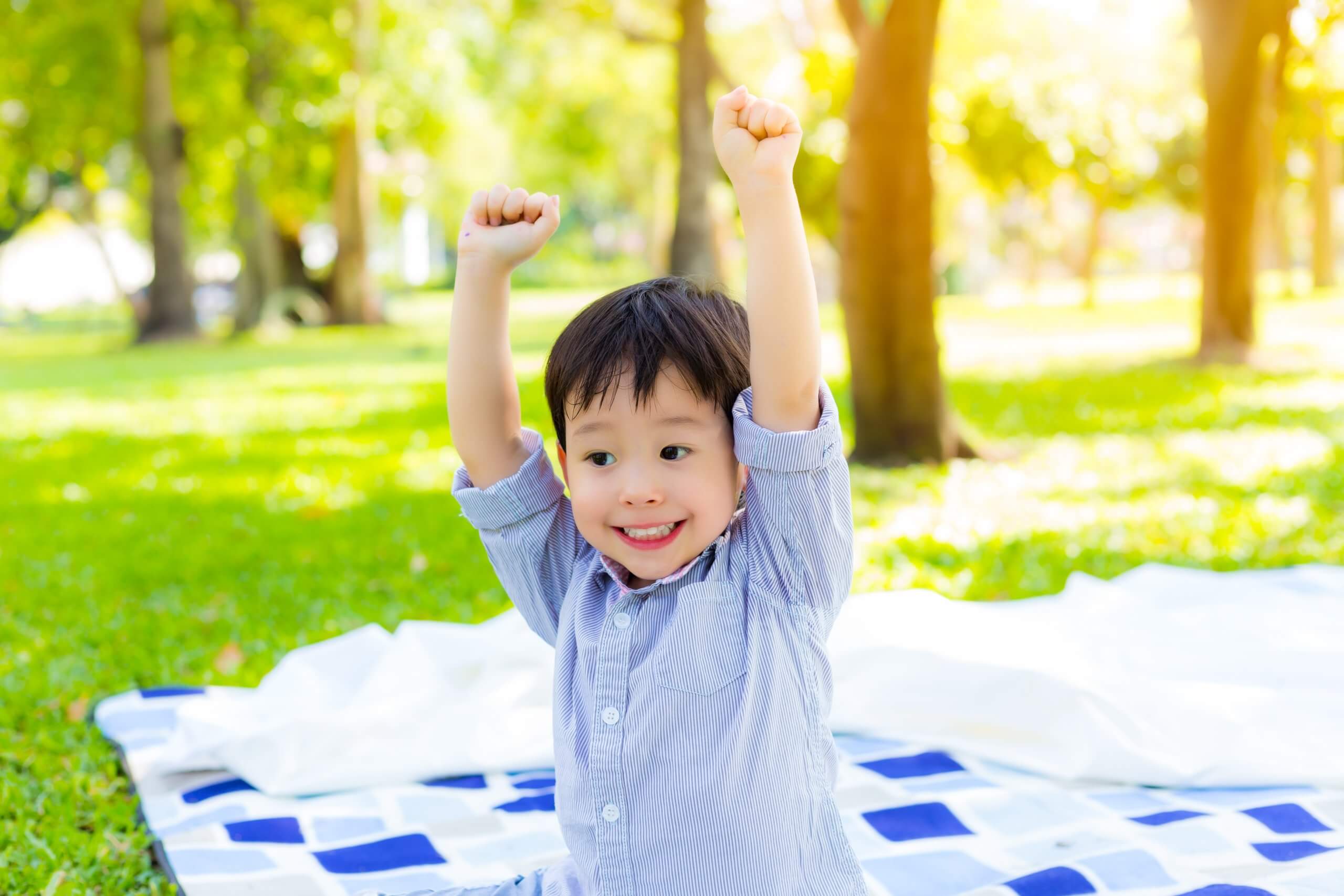Time Outside

FEATURED POSTS
April 14, 2025
t’s July, and we have all spent more than our fair share of time inside over the past four months. In this time of cautious re-opening and nicer weather everywhere, we are all enjoying the outdoors and appreciating it more than usual. By following the CDC guidelines to stay socially distant from others, wear masks when feasible, and wash our hands often, it can be safe to be out and about in nature. Let’s take a look at the benefits of getting our kids outside to enjoy some fresh air and sunshine, while considering ways to do so away from crowds. We need it more now than ever!
The Benefits: Stress reduction, improved attention, motor skills
A pandemic is a stressful time. Disrupting routines (not only school, but after-school activities, therapies, and playdates) has intensified existing anxiety issues for many kids, so it’s a good reminder that being outside and being in nature is a great stress reducer. Studies show that even small amounts of time in nature (10-20 minutes) can help alleviate stress and make us feel happier-1. Time outside decreases cortisol, the “stress hormone,” that plays a role in anxiety and depression. In one study, pediatricians actually prescribed nature visits to families, and saw a decrease in parental stress-2.
Too much exposure to electronics can exacerbate attentional issues; with school closed this spring, many children have had more access to electronics than they typically would. Spending time outdoors can improve attention and may even lessen the symptoms of ADHD, which many children with autism also exhibit. Research has consistently shown that exposure to nature can improve concentration and even help impulse control-3.
Many of our kids have not had in-person occupational therapy, physical therapy, sports activities, or physical education in months. Spending time outdoors can improve motor skills by motivating children to engage in more and different types of activities, ultimately supporting their motor development-4. To be clear, it is not a substitute for therapy needs, but playing outdoors can give children more opportunities to improve their strength and balance than staying inside.
In addition to the above health factors, the risk of contracting COVID-19 appears to be lower outside than in-5.
1 Meredith, G.R., Rakow, D.A., Eldermire, E.R.B., Madsen, C.G., Shelley, S.P., Sachs, N.A., (2020). Minimum time dose in nature to positively impact the mental health of college-aged students, and how to measure it: A scoping review. Frontiers in Psychology, 14.
2 Razani, N., Marshed, S, Kohn, M. A., Wells, N. M., Thompson, D., Alqassai, M., Agodi, A, Rutherford, G. W. Effect of park prescriptions with and without group visits to parks on stress reduction in low-income parents: SHINE randomized trial. PLOS ONE 13(2): e0192921.
3 Andrea Faber Taylor, Frances E. Ming Kuo. Could Exposure to Everyday Green Spaces Help Treat ADHD? Evidence from Children’s Play Settings. Applied Psychology: Health and Well-Being, 2011; DOI: 10.1111/j.1758-0854.2011.01052.x
4 Niemistö, D., Finni, T., Haapala, E.A., Cantell, M., Korhonen, E., Saakslahti, A., (2019). Environmental correlates of motor competence in children—The Skilled Kids study. International Journal of Environmental Research and Public Health, 16
5 https://www.nytimes.com/2020/07/03/well/live/coronavirus-spread-outdoors-party.html
NOW TURN OFF THE COMPUTER AND GO OUTSIDE! IDEAS ON HOW TO GET OUTDOORS SAFELY.
The benefits of spending time outside or being in nature do not require a specific activity or a lot of preparation. Just being outside can be the goal. Some parents have the energy and inclination to run around and play with their kids, but if you do not, or if you have to be working on your laptop, don’t let that stop you. Just getting out in the fresh air is enough – even if you are sitting down with an iced coffee and your work laptop and allowing the kids to explore and play. Here is some inspiration for your outdoor adventures, be they goal-oriented or simply a place to wander.
LOW-KEY IDEAS FOR GETTING OUT IN NATURE
THE REGULAR STOPS: PLAYGROUNDS, POOLS, AND BEACHES.
Obviously, there are the regular summer go-tos. The internet can help you find the least busy spots: town websites, Facebook groups, and twitter can give you real-time information on which spaces are empty enough to truly practice safe social distancing. For instance, you may find that certain beaches in your area are practically empty in the evenings or on cloudy days. Even though it’s not your typical beach-day, kids can dig in the sand, run, and explore. Some places may even have you register for a parking spot in advance, assuring you that it will not become overcrowded.
OPEN-AIR MUSEUMS
Collections displaying buildings, sculptures, airplanes, ships, and other artifacts outside are known as Open Air Museums. Many of these organizations are limiting crowds by requiring online reservations and taking other proper precautions, in addition to the fact that they are already naturally well-ventilated. Learn about World War II at the Palm Springs Air Museum in California. Explore the kid-friendly trails on the acres of outdoor space at the Fruitlands Museum in Harvard, Massachusetts, where a group of transcendentalists lived in the 1840’s, attempting to create a utopian community. Walk amongst log cabins and stores from the fur trade era at the Pioneer Park Historical Complex in Rhinelander, Wisconsin, or visit the Chesapeake Bay Maritime Museum in St. Michaels, Maryland, which houses the world’s largest collection of Chesapeake Bay boats. Before jumping in your car, be sure to check online to see if reservations are required.
FORESTS AND FIELDS
This can be a go-to for working parents who need an outing with zero prep-time. There are plenty of outdoor spaces that don’t have playgrounds, water features, or any other bells and whistles, and so aren’t typical destinations. Nevertheless, where there are sticks, rocks, bugs, and dirt, most kids will find something to explore. The fact that there isn’t a featured element like a playground or a splash park keeps the crowds away, but there is just as much sun and fresh air as anywhere else. Working parents can take a lawn chair and a hotspot and work under a tree while kids explore nature or even play with their favorite indoor toys while getting a Vitamin D bath.
SUNSHINE IN YOUR OWN BACK YARD
For families in areas where outdoor spaces are largely closed, or parents who don’t want to risk going into public outdoor spaces at all, simply spending time in their own backyard or garden is enough to connect with nature and reap some benefits. No access to a backyard or garden? Planting flowers or growing vegetable seeds on a porch or a windowsill with your kids still puts you all in the sunshine and may even bring in some interesting six-legged wildlife. And one study, conducted last year by the Detroit Zoological Society and Michigan State University, showed that even viewing animals on a screen might decrease stress.
For those of us who have been on electronics overload, having binge-watched every show on Netflix and allowed our kids to get lost in the worlds of Minecraft, Roblox, and other video games, the ability to go out again is more than welcome. Following the guidelines to keep a safe distance between non-household members, wearing masks when necessary, and washing hands frequently keeps being outdoors a healthy way to relieve stress and anxiety. We all feel a little better when we increase our physical activity, and get a little change of scenery, so put down your device and go spend some valuable time in the fresh air.





